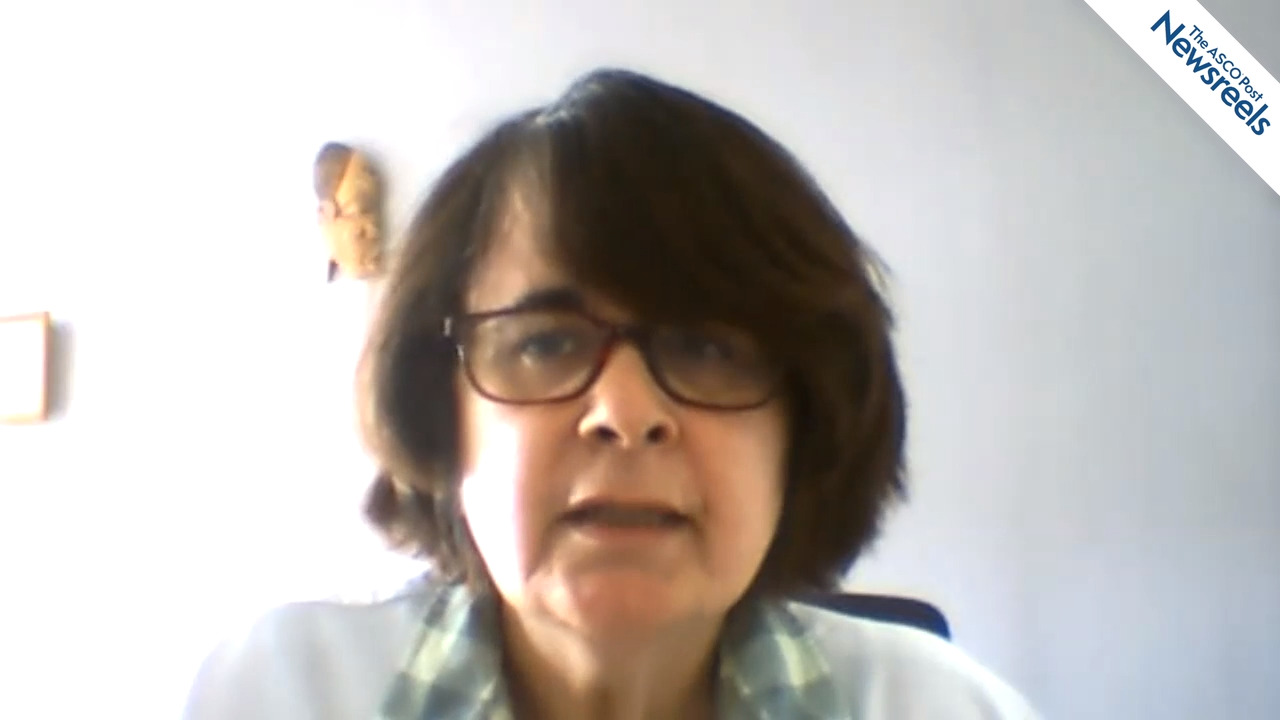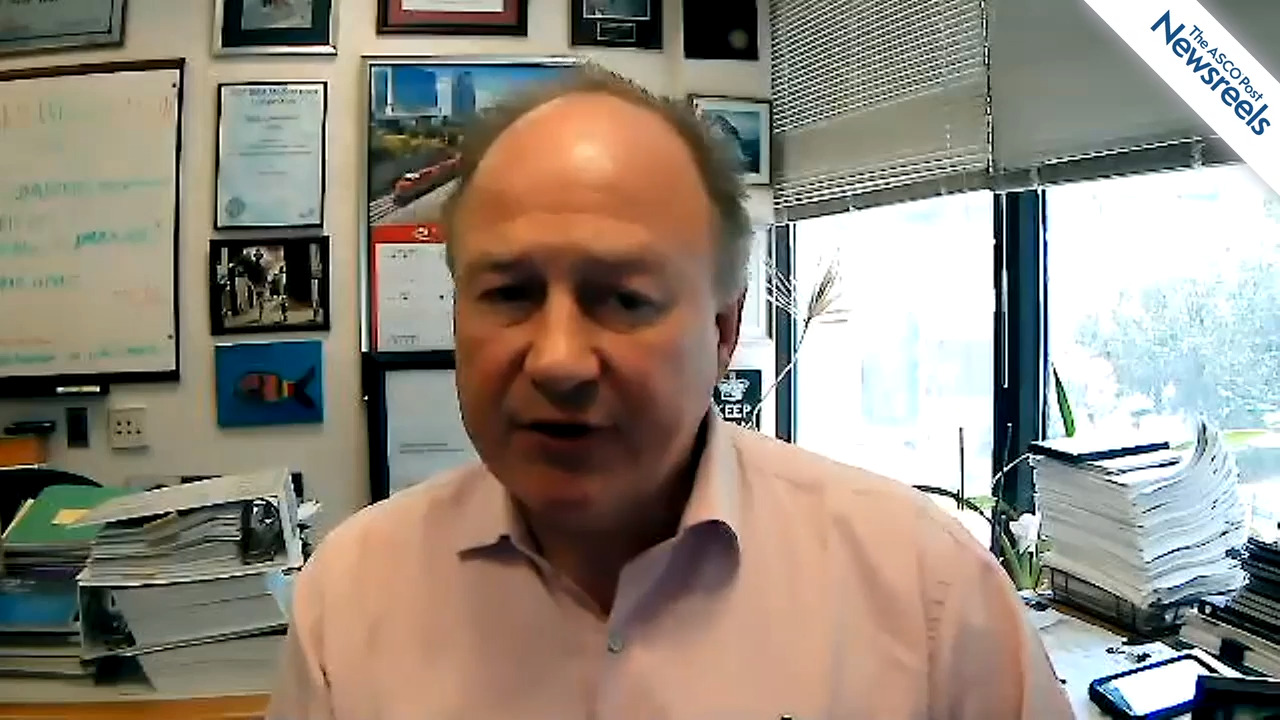Leora Horn, MD, on Thoracic Cancer and COVID-19: How Type of Cancer Therapy May Affect Survival
ASCO20 Virtual Scientific Program
Leora Horn, MD, of Vanderbilt University, discusses the results of the TERAVOLT study, launched by the Thoracic Cancers International COVID-19 Collaboration. It examined the impact of specific chemotherapy and immunotherapy regimens on hospitalization and risk of death in patients with thoracic malignancies who are also infected with COVID-19 (Abstract LBA111).
The ASCO Post Staff
Scott Kopetz, MD, PhD, of The University of Texas MD Anderson Cancer Center, discusses phase III results of the BEACON CRC study, which confirmed that, compared with standard chemotherapy, encorafenib plus cetuximab with or without binimetinib improved overall survival and objective response rate in previously treated patients with BRAF V600E–mutated metastatic colorectal cancer (Abstract 4001).
The ASCO Post Staff
Christopher Sweeney, MBBS, of Dana-Farber Cancer Institute, talks with Thomas Powles, MD, PhD, of Queen Mary University of London, about the first study to demonstrate a survival advantage with avelumab for metastatic urothelial cancer. In the trial, avelumab improved median overall survival by 21.4 months compared with 14.3 months with best supportive care (Abstract LBA1).
The ASCO Post Staff
Patricia Pautier, MD, of Institut Gustave Roussy, discusses final results of the phase II LMS-02 study, which showed the combination of doxorubicin and trabectedin to be an effective first-line therapy for patients with leiomyosarcoma, with an acceptable safety profile (Abstract 11506).
The ASCO Post Staff
Parameswaran Hari, MD, of the Medical College of Wisconsin, discusses phase III data from a 6-year follow-up of the STaMINA trial, which compared progression-free survival among 758 patients with high-risk multiple myeloma who received a second autologous transplant and lenalidomide maintenance; consolidation with lenalidomide, bortezomib, and dexamethasone followed by lenalidomide maintenance; or lenalidomide maintenance alone (Abstract 8506).
The ASCO Post Staff
Paul G. Richardson, MD, of Dana-Farber Cancer Institute, discusses early results on a cereblon E3 ligase modulator agent combined with dexamethasone in patients with relapsed or refractory multiple myeloma, with an overall response rate of 48%. The study is ongoing to further optimize dose and schedule (Abstract 8500).





